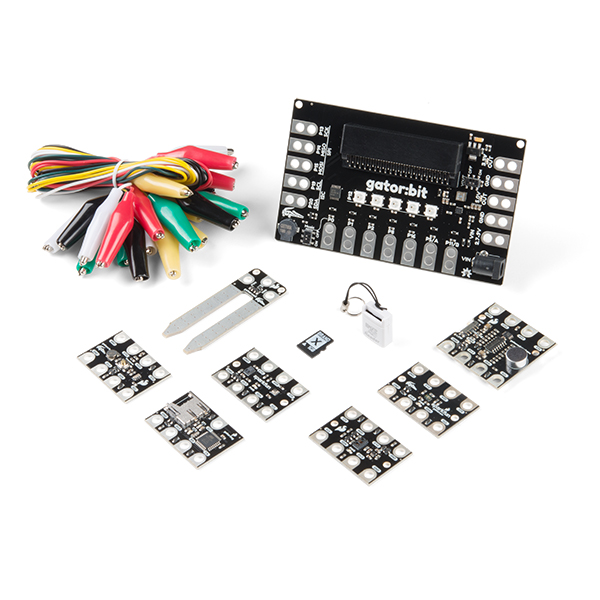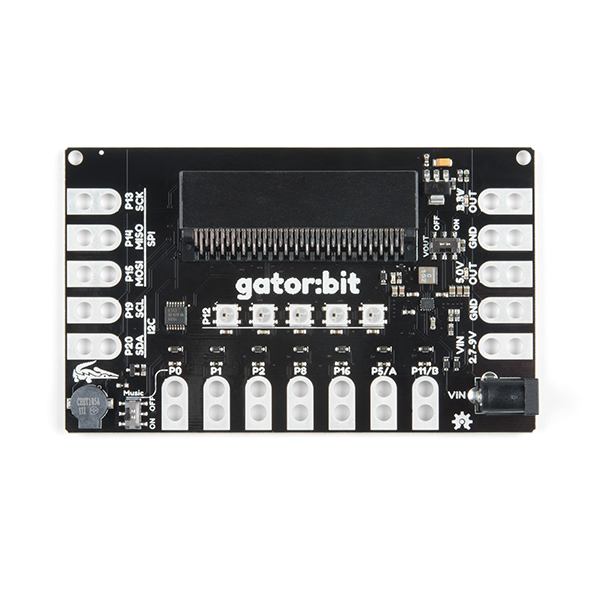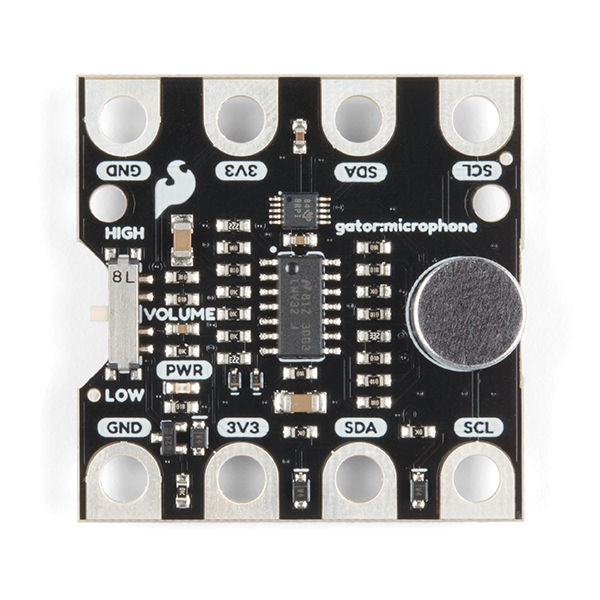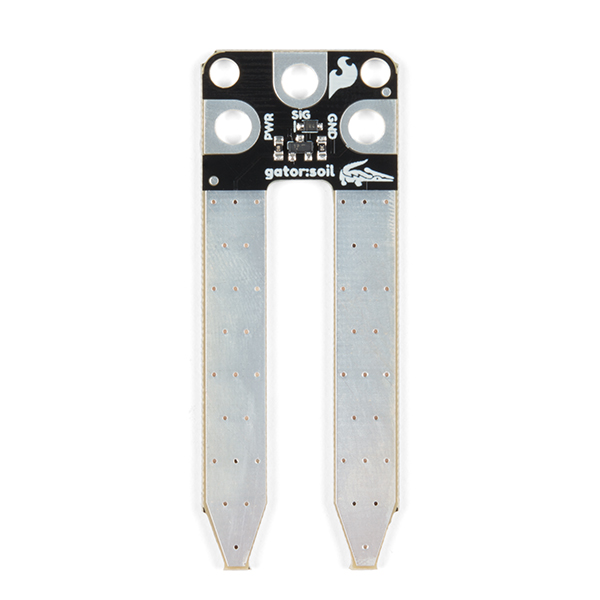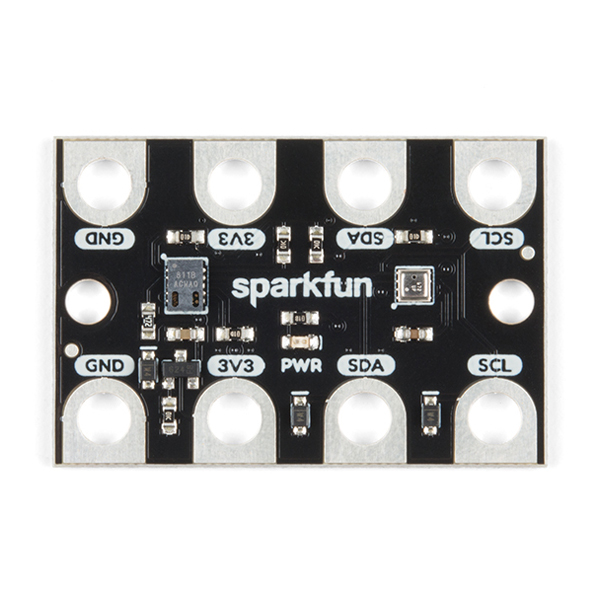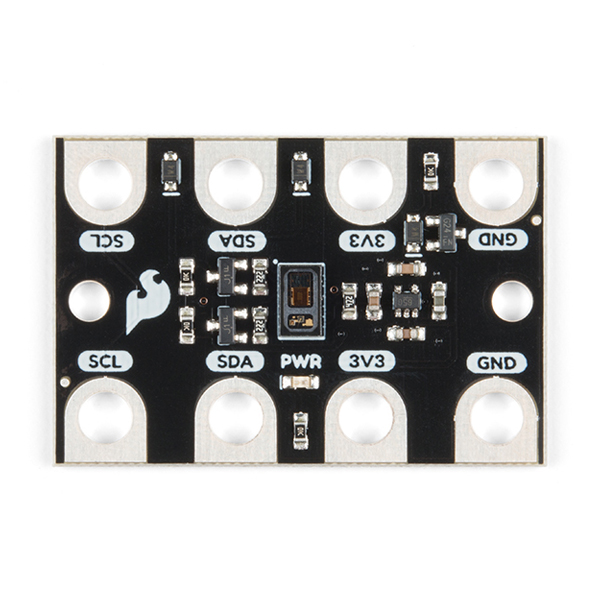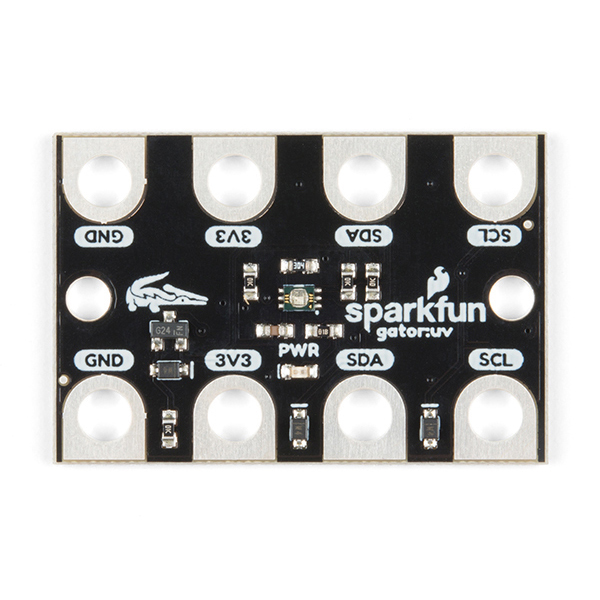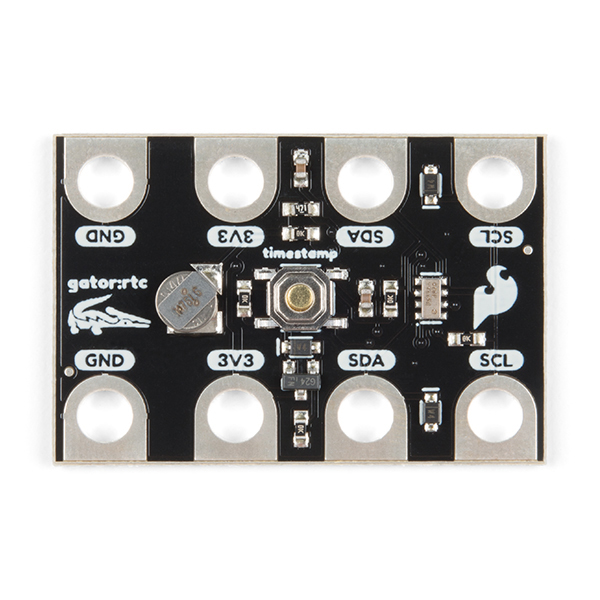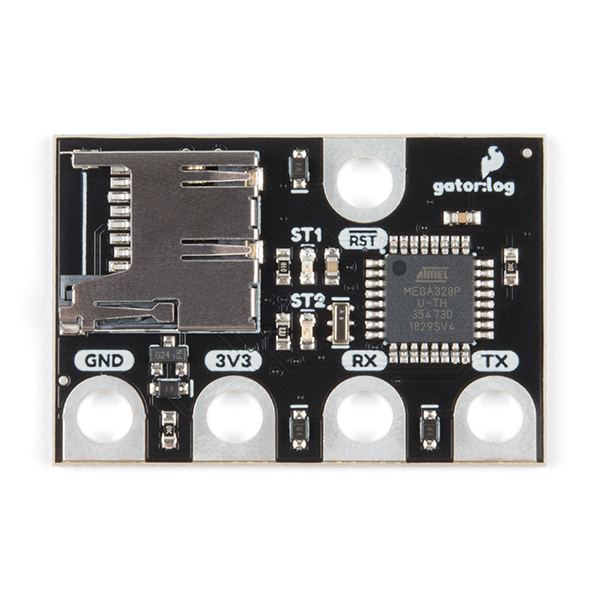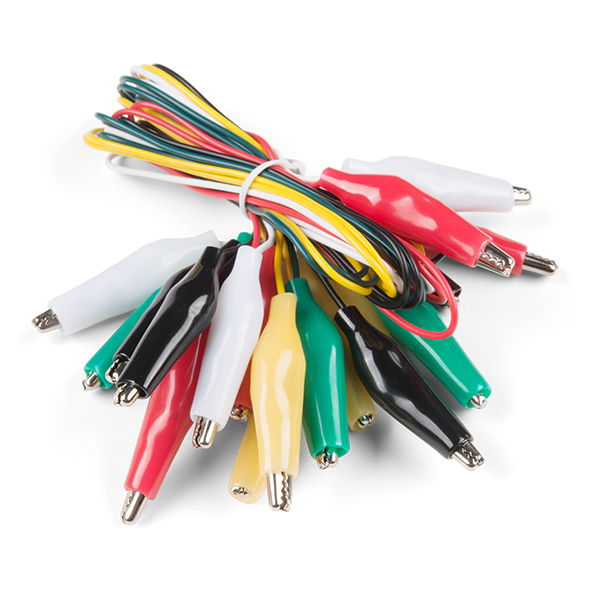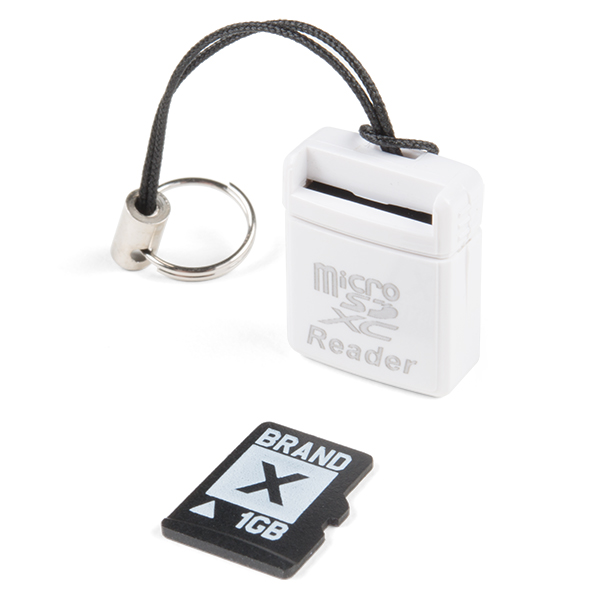SparkFun gator:science Kit for micro:bit
As part of SparkFun's gator:bit series of alligator-clippable accessories, the SparkFun gator:science Kit includes all of the current sensor-related gator:boards to get started playing with the SparkFun gator:bit ecosystem. It includes seven micro:bit accessory boards to expand the functionality & your ability to experiment right out of the box along with the latest revision of the gator:bit; an all-in-one “carrier” board for your micro:bit that provides you with a fully functional development and prototyping platform. This kit is recommended for all users, from beginners to engineers and does not require any soldering at all!
Inside this kit you will find a gator:microphone audio board, gator:UV ultraviolet sensor, gator:soil moisture sensor, gator:environment CCS811 and BME280 sensor, gator:particle biometric sensor, gator:RTC (real time clock), and gator:log data logger. Additionally, we've also included a SparkFun gator:bit V2.0, alligator cables, and a 1GB microSD card and USB adapter! This all-in-one kit makes it easy to add sensors to micro:bits in the classroom or educational setting, just add micro:bits.
The micro:bit is a pocket-sized computer that lets you get creative with digital technology. Between the micro:bit and our shield-like bit boards you can do almost anything while coding, customizing and controlling your micro:bit from almost anywhere! You can use your micro:bit for all sorts of unique creations, from robots to musical instruments and more. At half the size of a credit card, this versatile board has vast potential!
Note: The SparkFun gator:bit does NOT include a micro:bit board. The micro:bit will need to be purchased separately.
- SparkFun gator:bit v2.0
- SparkFun gator:microphone - micro:bit Accessory Board
- SparkFun gator:UV - micro:bit Accessory Board
- SparkFun gator:soil - micro:bit Accessory Board
- SparkFun gator:particle - micro:bit Accessory Board
- SparkFun gator:log - micro:bit Accessory Board
- SparkFun gator:environment - micro:bit Accessory Board
- microSD USB Reader - for use with gator:log
- microSD Card - 1GB - for use with gator:log
- Alligator Test Leads - Multicolored (10 pk)
- Gator:bit V2.0 Hookup Guide
- SparkFun gator:microphone Hookup Guide
- SparkFun gator:UV Hookup Guide
- SparkFun gator:soil Hookup Guide
- SparkFun gator:particle Hookup Guide
- SparkFun gator:log Hookup Guide
- SparkFun gator:environment Hookup Guide
- Getting Started with the micro:bit
- About micro:bit Page
- micro:bit Programmer
SparkFun gator:science Kit for micro:bit Product Help and Resources
Getting Started with MicroPython and the SparkFun Inventor's Kit for micro:bit
July 11, 2017
Learn MicroPython with the micro:bit.
SparkFun gator:environment Hookup Guide
June 13, 2019
The gator:environment combines two I2C sensors for temperature, humidity, pressure, eCO2, and eTVOC values. This tutorial will get you started using the gator:environment with the micro:bit platform.
SparkFun gator:microphone Hookup Guide
June 13, 2019
The gator:microphone is an I2C sensor for detecting sound with an electret microphone. This tutorial will get you started using the gator:microphone with the micro:bit platform.
SparkFun gator:particle Hookup Guide
June 13, 2019
The gator:particle is an I2C heart-rate monitor and pulse oximeter that can be used as a particle sensor. This tutorial will get you started using the gator:particle with the micro:bit platform.
SparkFun gator:log Hookup Guide
September 5, 2019
The gator:log is a serial communication based data logger. This tutorial will get you started using the gator:log with the micro:bit platform.
SparkFun gator:soil Hookup Guide
June 13, 2019
The gator:soil is analog soil moisture sensor. This tutorial will get you started using the gator:soil with the micro:bit platform.
How to Create a MakeCode Package for Micro:Bit
April 16, 2019
Learn how to develop code blocks for the Micro:bit in Microsoft MakeCode!
Getting Started with the micro:bit
September 2, 2021
The BBC micro:bit is a compact, powerful programming tool that requires no software installation. Read on to learn how to use it YOUR way!
SparkFun gator:RTC Hookup Guide
September 5, 2019
The gator:RTC is an I2C based, real-time clock (RTC) for keeping time while your micro:bit isn't powered. This tutorial will get you started using the gator:RTC with the micro:bit platform.
SparkFun gator:UV Hookup Guide
September 5, 2019
The gator:UV is an I2C based UV sensor. This tutorial will get you started using the gator:UV with the micro:bit platform.
SparkFun gator:bit v2 Hookup Guide
January 31, 2019
The gator:bit v2 is a breakout board for the BBC micro:bit. The gator:bit exposes almost every pin on the micro:bit to clippable pad with circuit protection. It also has as built-in addressable LEDs and a built-in buzzer.
Core Skill: Programming
If a board needs code or communicates somehow, you're going to need to know how to program or interface with it. The programming skill is all about communication and code.
Skill Level: Rookie - You will need a better fundamental understand of what code is, and how it works. You will be using beginner-level software and development tools like Arduino. You will be dealing directly with code, but numerous examples and libraries are available. Sensors or shields will communicate with serial or TTL.
See all skill levels
Core Skill: Electrical Prototyping
If it requires power, you need to know how much, what all the pins do, and how to hook it up. You may need to reference datasheets, schematics, and know the ins and outs of electronics.
Skill Level: Rookie - You may be required to know a bit more about the component, such as orientation, or how to hook it up, in addition to power requirements. You will need to understand polarized components.
See all skill levels
Comments
Looking for answers to technical questions?
We welcome your comments and suggestions below. However, if you are looking for solutions to technical questions please see our Technical Assistance page.
Customer Reviews
No reviews yet.

